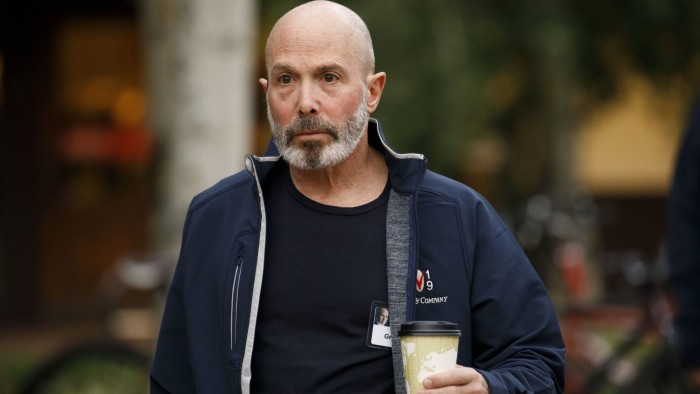Unlock the Editor’s Digest for free
Roula Khalaf, Editor of the FT, selects her favourite stories in this weekly newsletter.
Burford Capital’s boss has accused Chubb of abusing its market power after the US insurer said it would freeze out lawyers, bankers and asset managers who worked with litigation funders.
Chris Bogart, chief executive of Burford Capital, told the Financial Times that recent remarks by Chubb’s head Evan Greenberg urging insurers to cut ties with litigation funders amounted to “an inappropriate use of corporate power” and could be anti-competitive.
Greenberg, speaking at a trade conference in Chicago this month, had urged brokers and insurers to cut ties with the litigation funding industry, which he has accused of driving up the costs of lawsuits. In comments first reported by news platform Insurance Insider, he added that Chubb would sever ties with lawyers, bankers or asset managers if they continued working with funders. Chubb declined to comment.
The litigation funding sector has boomed in recent years. But it has also attracted pushback from insurers including Chubb, which have argued that such arrangements help fuel “excessive litigation”, pitting them against funders such as Burford.
“My disagreement with Evan is that I think it’s inappropriate to take the market power that large insurers have and try to use it to deny access,” Bogart told the FT. If the insurance industry teamed up to deny access to a “perfectly legal” market, it could raise concerns about anti-competitive practices, he said.
“It would be a little bit like an insurance executive coming along and saying, ‘I don’t want any more development in my neighbourhood, so we’re going to not write any new construction or homeowners policies in my neighbourhood’,” he added.
Litigation funding has become big business in recent years, with groups such as Burford supporting lawsuits around the world against companies including Amazon, Microsoft and Thames Water.
But the sector has attracted criticism from insurers, with Greenberg accusing funders of helping to push up the cost of lawsuits. In a 2024 letter to shareholders he criticised “third parties” that had “turned their bets on jury awards into an asset class” and said funding had helped to trigger a proliferation of cases “based around clever theories designed to find fault . . . where it simply doesn’t exist”.
Aon, the world’s second-largest broker, last year stopped offering insurance cover for litigation funders. The company said on Tuesday this was because “nuclear verdicts and litigation funding” in the US were creating “an unsustainable marketplace for our corporate and insurance clients”.
While insurers often find themselves at loggerheads with litigation funders in the course of covering big clients against potential losses from individual court cases, some also provide products tailored to the sector.
Assets held in insurance “wrappers”, which can cover losses above a set threshold on pools of uncorrelated legal investments, have grown so much that private credit funds such as Mubadala-backed Fortress Investment Group have lent money against litigation funding portfolios with insurance wrappers, one market participant said.
But the high cost of litigation payouts is worrying insurers, following a number of blockbuster awards handed out by juries in the US. Average damages in US trials hit a record last year, thanks in part to “nuclear verdicts” against tech groups Microsoft and Amazon.
Swiss Re, the world’s second-largest reinsurer, issued a profit warning late last year, saying it would set aside billions of dollars in additional reserves to pay claims stemming from US lawsuits.
“I’m applauding Evan Greenberg,” chief executive Andreas Berger said on Swiss Re’s most recent earnings call, adding, “I welcome any constructive effort to address the abuse” of the legal system.
Bogart said he thought the litigation sector would thrive despite Greenberg’s hostility. “Is he also going to cut off all the law firms that do litigation as well?” he said.



